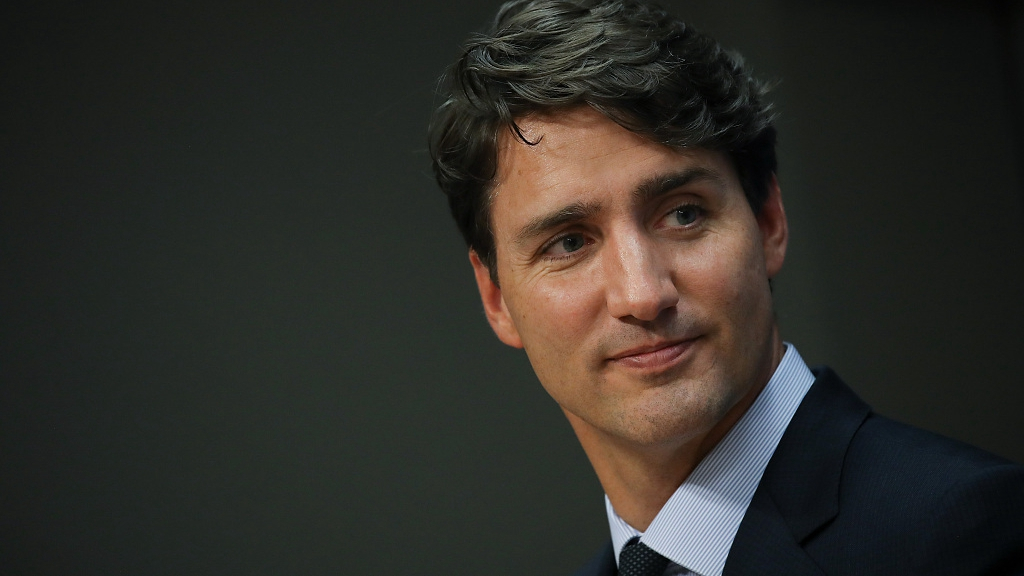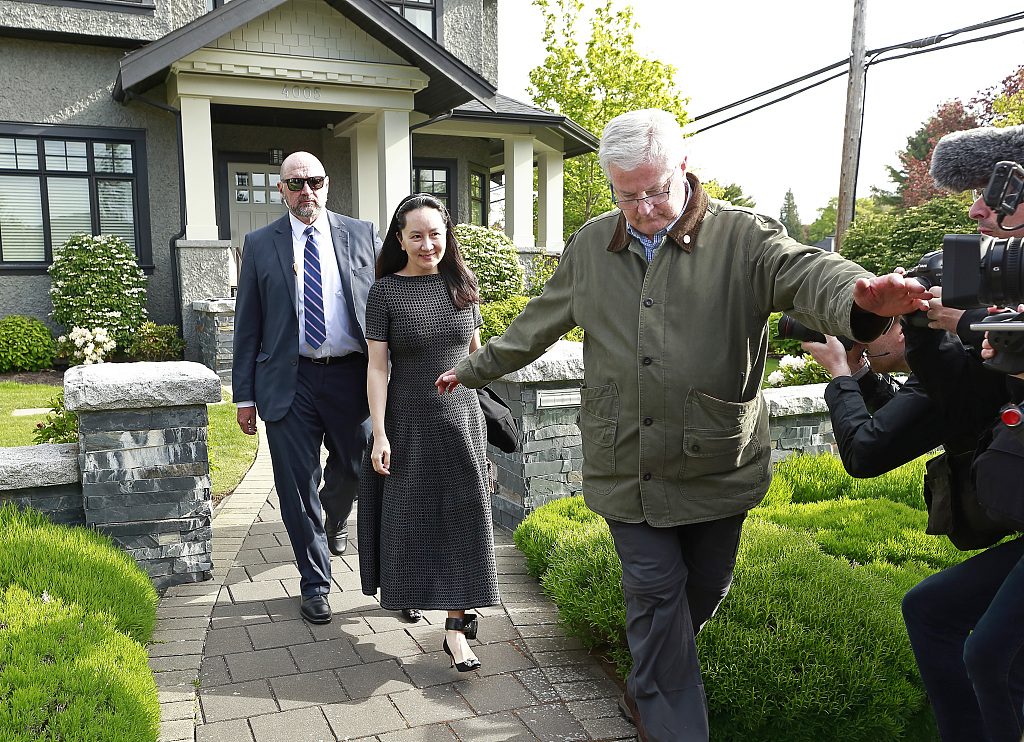

Editor's note: Tom Fowdy is a British political and international relations analyst and a graduate of Durham and Oxford universities. He writes on topics pertaining to China, the DPRK, Britain, and the U.S. The article reflects the author's opinion and not necessarily the views of CGTN.
Canadian Prime Minister Justin Trudeau launched an attack on China on Thursday, accusing it of using "pressure tactics" to secure the release of Huawei CFO Meng Wangzhou. In a speech, clearly geared towards the upcoming election, Trudeau slammed China's response as "unacceptable behavior" and accused them of leveraging the detentions of Michael Korvig and Michael Spavor, two Canadians who had been arrested in China. He then proceeded to denounce Beijing as playing "a very different set of rules and principles than we do in the West" but nevertheless insisted that Ottawa would continue constructive engagement with Beijing and would not pursue "escalation."
If Canada wants to improve its ties with China in the long run, then it needs to think considerably about how this spat began and the role it played pertaining to Washington. Meng Wangzhou's arrest was inherently political. Whilst Beijing is not going to seek a hostile relationship with Canada, a state which is much rational and level-headed than its southern neighbor- the U.S., nevertheless on the matter of foreign policy.
Trudeau cannot subservient himself to the demands of Washington and so willingly cooperate in an assault on China’s national interests, only to end up surprised at the outcome. Thus, on the road to recovery, it must take a more neutral stand and distance itself from the mindset of confrontation being brewed in the United States, as well as the broader western stand of "self-righteous" and China as an object to lead, guide and shape.
Last December, Meng was arrested in Vancouver on charges by the United States concerning alleged violations of unilateral sanctions over Iran, sending China-Canada relations into a tailspin. The event had spanned from Washington's growing global campaign against the company, in which the state has weaponized every tool at its disposal to damage its reputation.
The motivation of the arrest however, has been questionable. First of all, Donald Trump himself several times touted her as leverage for getting his terms in a trade deal. Sources behind the arrest also pointed the move as orchestrated by John Bolton working with the State Department. Canada was not oblivious to the motivations, former ambassador to China John McCallum admitted that the arrest was inherently political, a confession which would later force him out of his job.

Huawei Technologies Chief Financial Officer Meng Wanzhou wears an electronic monitoring device on her ankle as she is escorted by security from her home on May 8, 2019 in Vancouver, Canada. /VCG Photo
Despite a clear partial move against China, Canada fails to see what it has done wrong. It has repeatedly insisted that the arrest was in accordance with the rule of law, and Canadian media have pushed to orchestrate a narrative of "Chinese aggression" against the country eager to push Trudeau into following the "China threat" mantra that is sweeping Washington D.C. Instead however, China has not responded to Canada with aggression or ambition, but has merely sought to act to defend its national interests in the light of another country pursuing geopolitical confrontation against it, and in turn a treaty ally acting as a conduit in supporting such at their request. If one bothers to think objectively, it should not be hard to see why China is upset.
But as with many Western countries, Ottawa fails to incorporate or acknowledge China's position as equal or legitimate, as mirrored by Trudeau's comments which attempt to subordinate Beijing for merely reacting to a crisis which it did not initiate.
In turn, Canada takes for granted as to why China must act sharply in order to defend its position, thus the claim it "plays by a different rulebook" is not only arrogant, but simply ignorant of China's geopolitical realities. This is not about a disrespect for the rule of law or for a contempt for Canada, nor is it any attempt to subordinate or even coerce the country, it is the right to stand up for itself in the like of clear adversarial behavior from other countries, a pinnacle of the PRC was founded upon in the historical legacy of extra territorialism and colonialism.
Therefore, if Canada wants to improve its relationship with China again, it must take a more objective stance as to what happened here and recognize that it cannot make itself a party to geopolitical confrontation against China and then expect all the benefits of a prosperous relationship. Certainly, China is willing to extend a friendly hand to Canada. Few would deny that it is a friendly country, a preferable and more progressive place than the United States, one which is home now to a thriving Chinese diaspora.
In this case, if Canada is to succeed in rebuilding relations then it needs to take a middle ground. It must be more willing to grasp the realities of the Trump administration in its inherently unstable and unilaterally driven foreign policy, than to simply go along with it in the pose of a younger, naive brother to Washington.
(If you want to contribute and have specific expertise, please contact us at opinions@cgtn.com)

Copyright © 2018 CGTN. Beijing ICP prepared NO.16065310-3
Copyright © 2018 CGTN. Beijing ICP prepared NO.16065310-3